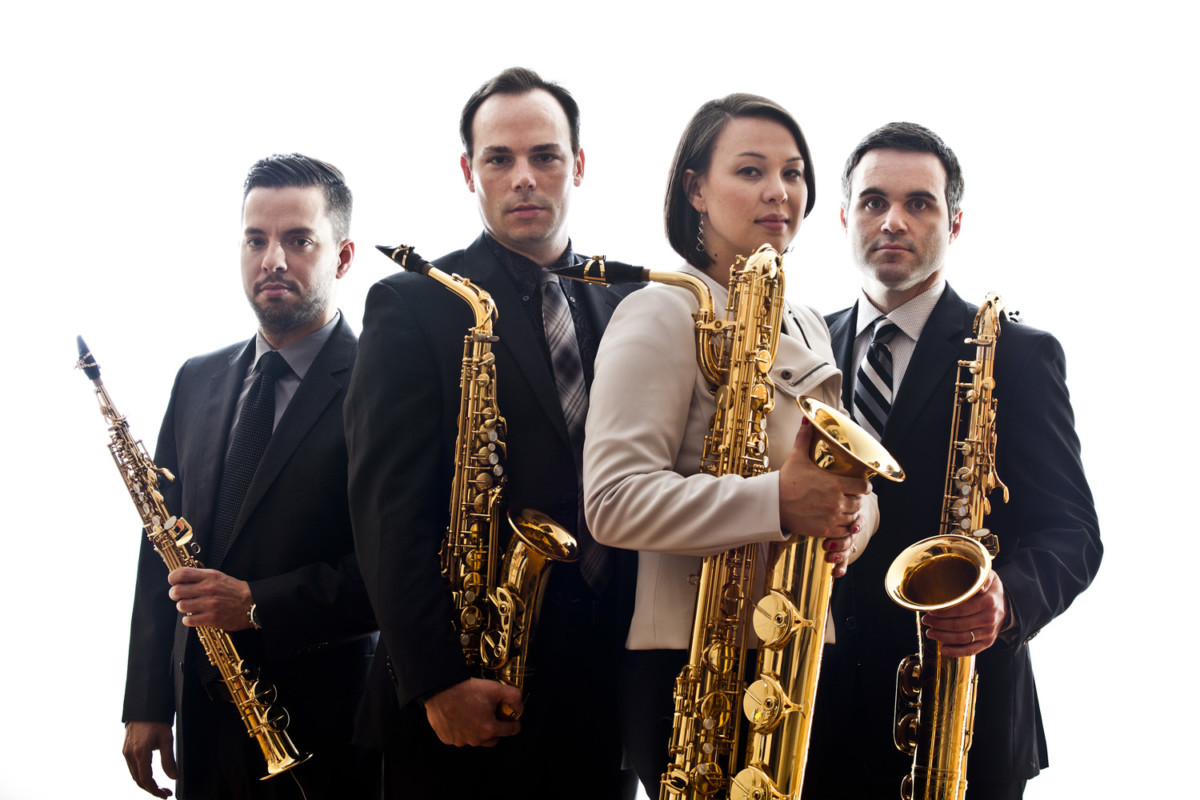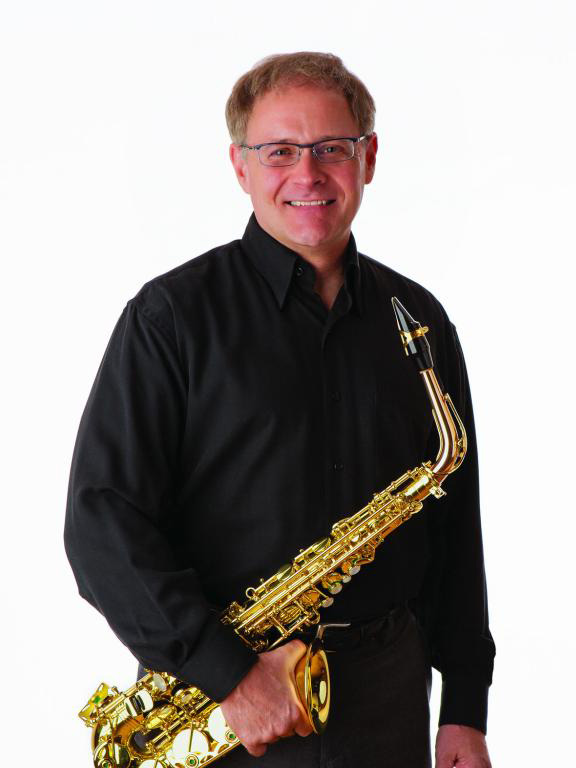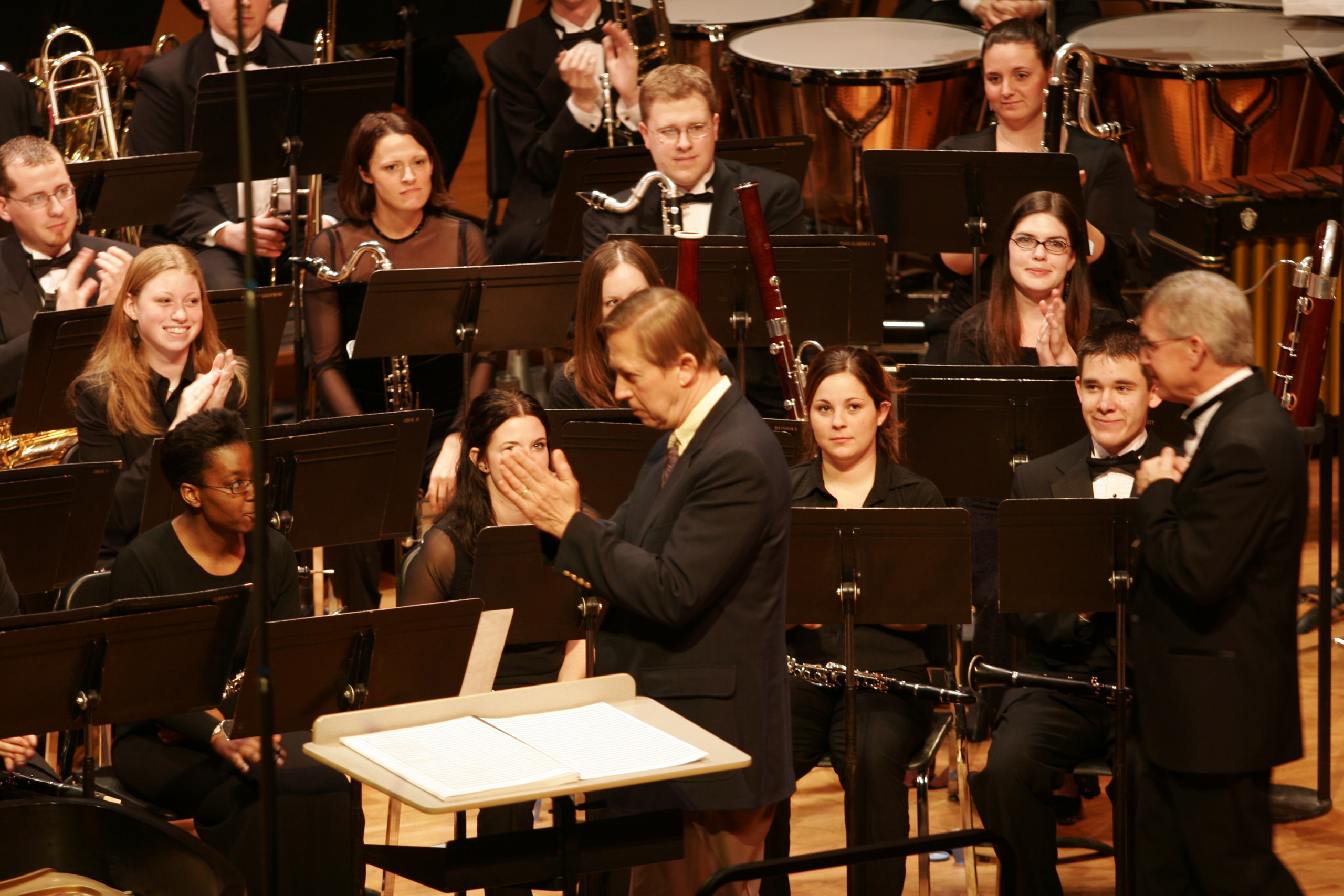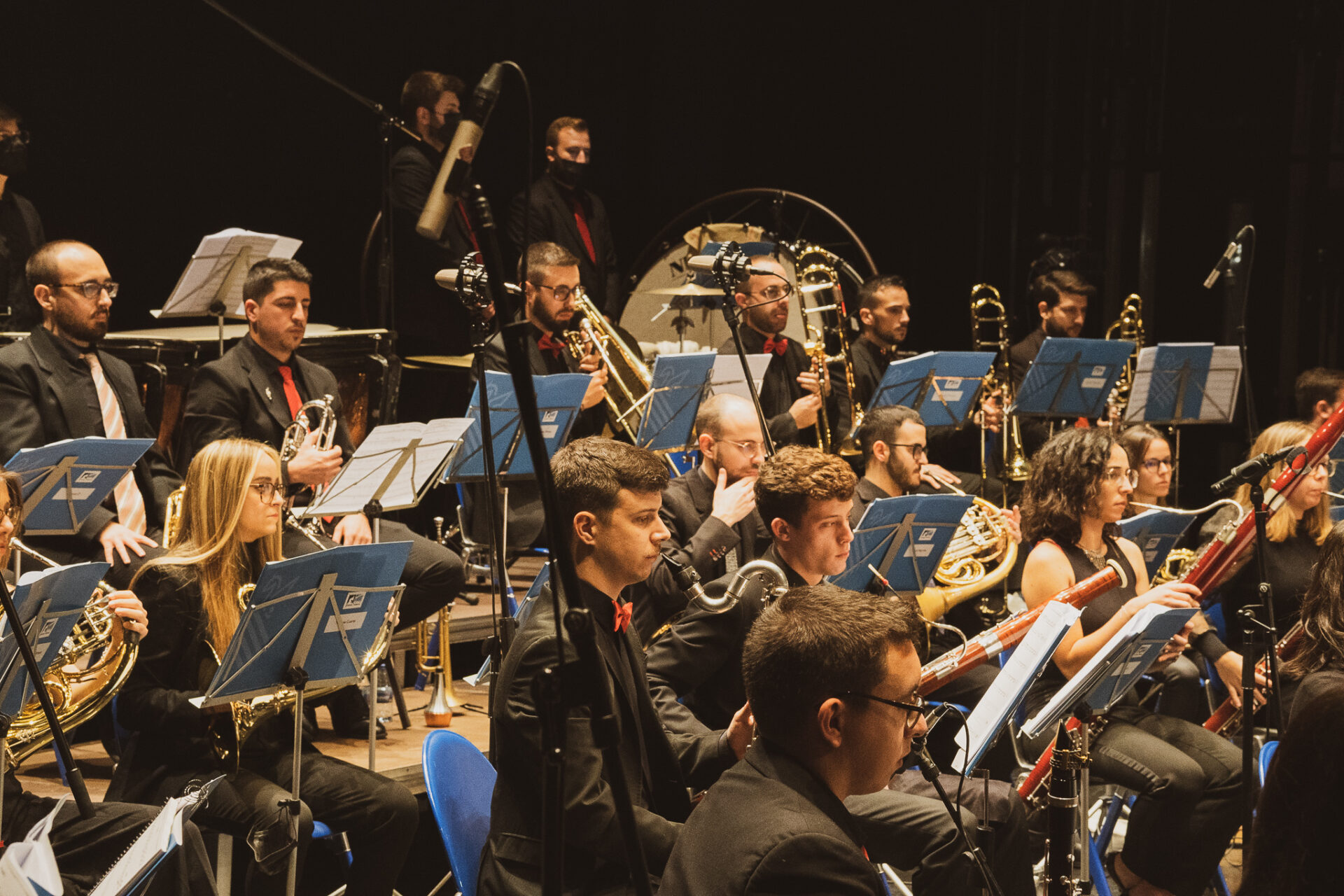Maslanka Weekly highlights excellent performances of David Maslanka’s music from around the web.
With fourteen compositions featuring the saxophone or saxophone quartet, David Maslanka was one of the foremost composers of classical saxophone music in our day. His saxophone pieces are well-known and performed around the world.
This week, we feature three amazing performances of some of David’s best saxophone music: Concerto for Saxophone Quartet and Wind Ensemble, “Very Fast” from Sonata for Alto Saxophone and Piano, and “Finale” from Mountain Roads.
Concerto for Saxophone Quartet and Wind Ensemble
From David’s Program Note:
For a period of time in the past year my musical listening was intently focused on the keyboard concertos of J.S. Bach. The invention of the keyboard concerto is attributed to Bach. His pieces in this genre are small musical gems, finding an exquisite balance of feeling, technique, and form. It is the element of balance that intrigues me the most – letting the music speak what it needs to as economically as possible.
(The) Concerto for Saxophone Quartet and Wind Ensemble reflects some of these values. It is not programmatic – no stories to tell beyond what the music wants to say, and what it sparks in each listener. The three movements are substantial but concise. The solo quartet is often integrated into the accompanying group in the fashion of a Baroque Concerto Grosso.
Two Chorale melodies appear in the Concerto, We Should Now Praise Christ, and Only Trust in God to Guide You. I have used Chorale melodies in my music for many years. These melodies open something deep in me. The Chorales have transformed my composing, and my composing has absorbed and transformed the Chorales. My use of the Chorales is not about preaching the Christian faith, but feeling the full power of melodies that have grown out of the Earth, and through centuries of human experience. They have been my doorway to the roots of our musical language.
Watch below as Joseph Missal leads the H2 Quartet and the Oklahoma State University Wind Ensemble in a sublime performance of this music.
More info
- Joseph Missal
- H2 Quartet
- Oklahoma State University Bands
- Concerto for Saxophone Quartet and Wind Ensemble @ davidmaslanka.com
Sonata for Saxophone and Piano – III. Very Fast
About his Sonata for Alto Saxophone and Piano, Maslanka said, “The Sonata alternates between an innocent stroll in the park and a fierce breaking of tonal and formal boundaries. The three movements are personal adaptations of old forms – the first a sonata, the second an ABA song form, and the third a rondo. Each movement has a turbulent, eruptive quality that takes this music away from its historical models and makes it very much a music of our time.”
Watch below as Ogishima Ryota (Alto Saxophone) and Akiko Yoshida (Piano) give an exciting performance of Movement III.
More info
- Sonata for Alto Saxophone and Piano @ davidmaslanka.com
Mountain Roads – VI. Finale
From David’s Program Note:
The music of Mountain Roads is a very personal statement. I feel very deeply about every bit of it. The musical plan of it follows the model a Baroque cantata, and style and content reflect my years of study of the Bach chorales, and of Bach in general. Obviously there are no words in my “cantata” but the music revolves entirely around two chorale melodies. The main one is “Alle Menschen müssen sterben” (All men must die) and the second is “Wo soll ich fliehen” (Where shall I run to?)
The title Mountain Roads comes from a dream that I had while writing this piece. In it I was part of a work crew making new roads in high mountain country. It was springtime, the weather was clear, sunny and comfortable, although there was still snow on the ground. The effect of the place was exhilarating as only mountain wilderness can be. It seemed to me that the dream was a beautiful metaphor for new life and new spiritual opening.
The paradox embodied in this exuberant and uplifting music lies in the title of the main chorale “All men must die,” and further reinforced by the second chorale, “Where shall I run to?” The first title suggests the inevitability of death, but is neither morbid nor about mass destruction. The idea of death is not so much about final end as about change. The process of growth is constantly about “dying” to one way of thinking or feeling, and opening to another. After all is said and done, there is the fact of physical death. The awareness of that fact points up our deep attachment to all the forms of this life. It makes experience of all things both deeply sweet and deeply sad. It also suggests the inevitable release of all the forms that we know, and the movement toward whatever exists beyond form.
Watch below as the Sobremesa Quartet gives a touching performance of an excerpt from Movement VI.
More info
- Sobremesa Quartet
- Mountain Roads @ davidmaslanka.com
We would love to hear from you! If you know of any outstanding performances of David Maslanka’s music on the web, please email us at maslankaweekly@maslanka.org.



